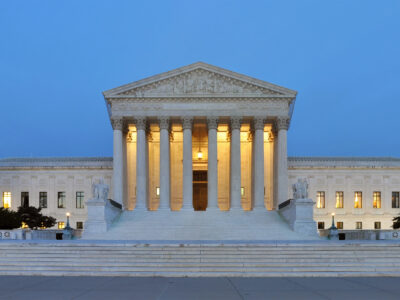Posner versus Scalia Smackdown!
Environmental law revolves around statutes, so the topic of statutory interpretation is crucial for lawyers in the field. For the past thirty years, Justice Scalia has promoted an approach called textualism, which purports to provide an objective method of interpreting laws. This approach often, though not always, leads to narrower reader of statutes than broader approaches that recognize Congress’s intent to protect the environment.
Judge Richard Posner has published a devastating critique of Scalia’s latest book on the textualism. I’ve seldom seen such a brutal and effective exercise in intellectual demolition. By the end, Scalia’s argument is in complete ruins.
Posner exposes deep inconsistencies in the book. He also shows that the book misrepresents the judicial opinions that it discusses, not just once or twice but in a slew of cases. In fact, as Posner shows, the cases actually do not support the theory at all:
There is a common thread to the cases that Scalia and Garner discuss. Judges discuss the meanings of words and sometimes look for those meanings in dictionaries. But judges who consult dictionaries also consider the range of commonsensical but non-textual clues to meaning that come naturally to readers trying to solve an interpretive puzzle. How many readers . . . will do what I have done—read the opinions cited in their footnotes and discover that in discussing the opinions they give distorted impressions of how judges actually interpret legal texts?
Posner also shows that Scalia’s actions as a Justice in major cases are either inconsistent with the theory or demonstrate the theory’s “remarkable elasticity.” That has long been obvious to anyone who reads Scalia’s judicial opinions. For instance, he argued that greenhouse gases are not covered by the Clean Air Act, even though the statute explicitly covers “any substance or matter which is emitted into or otherwise enters the ambient air.” It took some fancy footwork indeed for Scalia to get around the plain meaning of the statutory text. Posner shows that this is not an isolated example of Scalia’s approach in action.
I want to be clear in saying that the review demolishes Scalia’s argument. It doesn’t necessarily demolish textualism, which has more sophisticated defenders than Scalia. Of course, the failure of the theory to produce principled results in the hands of its most renowned practitioner may provide a practical argument against it.
If the review does not demolish textualism, what it does do is prove that Scalia shows little indication of being intellectually serious. He’s more interested in mouthing slogans than in thinking hard about problems and feels little concern about intellectual consistency.
As Posner shows, Scalia uses evidence and arguments the way a politicians does, not the way serious thinkers do. It is often said that Scalia is the ‘intellectual leader” among conservative judges If that’s actually true, it says more about their intellects than his.







Reader Comments